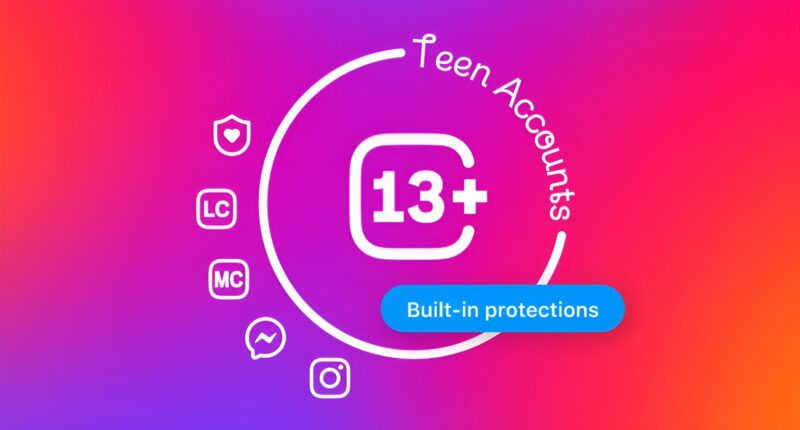Instagram has announced that Teen Accounts will be guided by PG-13 movie ratings by default, meaning teenagers will see content similar to what they would encounter in a PG-13 film.
The changes, rolling out in the US, UK, Australia and Canada from today, automatically place teens under 18 into an updated 13-plus setting that they cannot opt out of without parental permission. Meta is also introducing a new, stricter “Limited Content” setting for parents who prefer more restrictive controls.
Meta says the update represents the most significant change to Teen Accounts since their introduction last year and builds on automatic protections already provided to hundreds of millions of teens globally. Instagram will use age prediction technology to place teens into content protections even if they claim to be adults.
The updated policies will hide or not recommend posts with strong language, certain risky stunts, and content that could encourage potentially harmful behaviours, such as posts showing marijuana paraphernalia. This extends Instagram’s existing policies that already hide sexually suggestive content, graphic images, and adult content like tobacco or alcohol sales from teens.
The new protections span multiple areas. Teens will no longer be able to follow accounts that regularly share age-inappropriate content, whilst Instagram will block search results for a wider range of mature terms such as “alcohol” or “gore”. Content that violates the updated guidelines will be hidden from recommendations, feeds, stories and comments.
The Limited Content setting will filter even more content from the Teen Account experience and remove teens’ ability to see, leave or receive comments under posts. From next year, this setting will also further restrict AI conversations teens can have.
In a recent survey conducted by Ipsos and commissioned by Meta, 95 per cent of US parents of teens said the updated settings would be helpful, and 90 per cent said they would make it easier to understand the kind of content their teen is likely to see. In September, fewer than 2 per cent of posts recommended to teens were considered inappropriate by most parents.
Meta invited thousands of parents worldwide to rate real Instagram content, receiving over 3 million content ratings that were incorporated when refining age-appropriate guidelines. The company is testing a new way for parents using supervision tools to flag posts they think should be hidden from teens.
The changes will be fully rolled out by the end of the year, with plans to expand globally and apply more protections to teens who claim to be adults.











